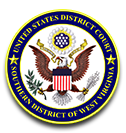- Objections to Disclosures or Discovery.
Objections to disclosures or discovery that are not filed within the response time allowed by the Federal Rules of Civil Procedure, the scheduling order(s), or stipulation of the parties pursuant to FR Civ P 29, whichever governs, are waived unless otherwise ordered for good cause shown. Objections shall comply with FR Civ P 26(g) and any claim of privilege or objection shall comply with FR Civ P 26(b)(5).
- Duty to Confer.
Before filing any discovery motion, including any motion for sanctions or for a protective order, counsel for each party shall make a good faith effort to confer in person or by telephone to narrow the areas of disagreement to the greatest possible extent. It shall be the responsibility of counsel for the moving party to arrange for the meeting.
- Motions to Compel.
A motion to compel disclosure or discovery must be accompanied by a statement setting forth verbatim each discovery request or disclosure requirement and any response thereto to which an exception is taken. In addition, the movant may include a statement of the grounds and pertinent authorities relied upon and shall file such a statement if requested by the court. If the discovery request or disclosure requirement is ignored, the movant need only file a motion to compel without setting forth verbatim the discovery request or disclosure requirement. Motions to compel or other motions in aid of discovery not filed within 30 days after the discovery response or disclosure requirement was due are waived, and in no event provide an excuse, good cause or reason to delay trial or modify the scheduling order. The 30-day deadline may be extended by court order for good cause shown, or by stipulation of the parties, so long as the extension does not interfere with the scheduling order. Any such stipulation must be filed pursuant to LR Civ P 11.2.
- Telephonic Conferences During Discovery Events.
If a dispute arises during a discovery event, the parties must attempt in good faith to resolve the matter without judicial intervention. If a good faith conferral fails to resolve the dispute and if its disposition during the discovery event is likely to result in savings of substantial time and expense, a party or counsel may contact the chambers= staff of the magistrate judge to whom the case is assigned to request a telephone conference during the discovery event.
Discovery Disputes
